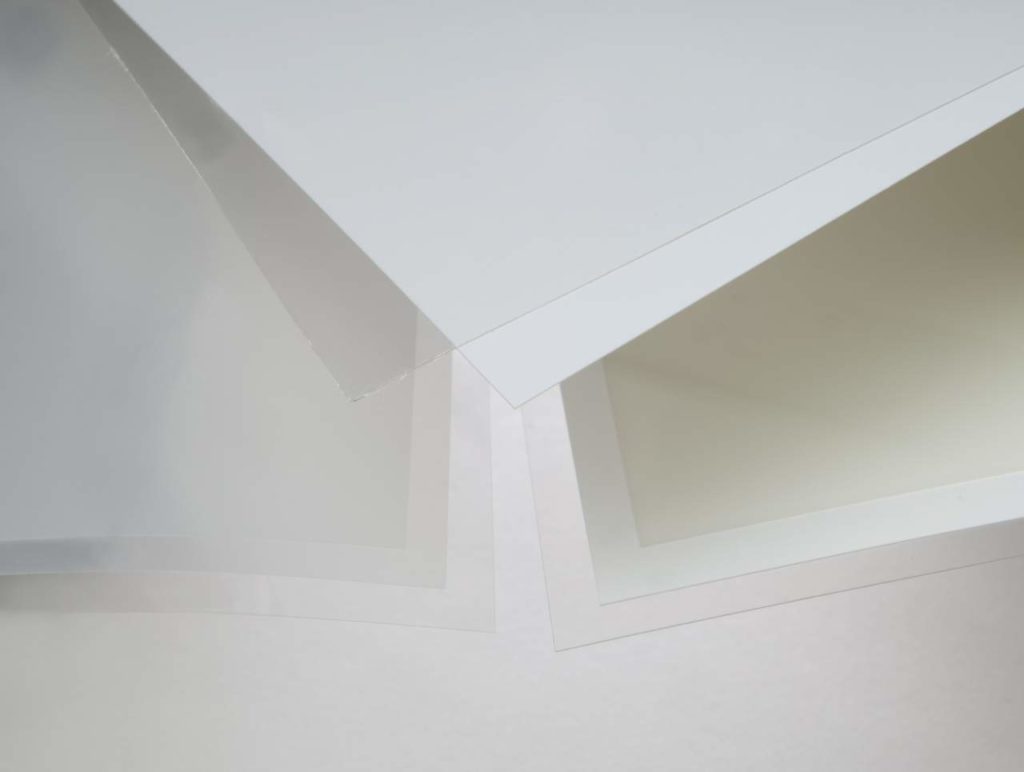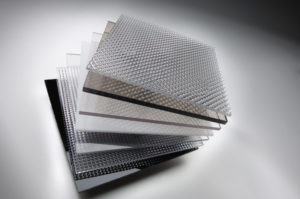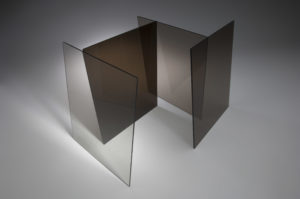PETG plastics can be used in nearly any industry, from retail signage to manufacturing and heavy equipment. This category of plastics displays several high-performance properties that make it unique in the world of thermoplastics. But it also offers certain qualities that cause it to get compared to other materials like polycarbonate and acrylic quite often.

Understanding this option and how it stacks up against other materials can help you make informed decisions when purchasing plastics for your commercial and industrial applications. Here’s a guide for anyone who may be considering PETG plastics for their own engineering or industrial needs.
Material Properties of PETG Plastics
PETG stands for Polyethylene Terephthalate Glycol. It is a variation of PET, but the addition of glycol makes it stronger and able to hold its form better in a wider range of temperatures and settings. PETG is usually a clear thermoplastic that can be formed into a nearly endless selection of shapes and sizes. This makes it suitable for use in a broad range of industries and specific applications. Here’s a more in-depth look at a few of these qualities.
PETG is often notable for its formability. It is easy to fabricate in a variety of ways, making it a versatile material and allowing users to receive products that are customized to their size and shape needs right away. More specifically, PETG can be molded and shaped using heat, since it is a thermoplastic. In addition to traditional heat bending and vacuum forming methods, the raw material is also often used as a resin in 3D printing. Once formed into your desired shape, PETG is not prone to overheating like some PET plastic products. It can still be melted and recycled like other thermoplastics, but it has a wider range of temperature stability thanks to the addition of glycol in its chemical structure.
Another quality that PETG plastics are known for is their impact resistance. The material is more impact resistant than acrylic, but not as impact resistant as polycarbonate, which is often used in bullet-resistant glass and security window applications. All of these are superior to glass in terms of withstanding impact. So if you need a solid but not completely impermeable surface, PETG may be suitable for your applications.
Though PETG is not moisture resistant, it can hold its form when exposed to various chemicals. So it is suitable for industrial environments where it may be in contact with solvents or similar materials.
Visually, PETG is generally clear. However, colors can be added during the manufacturing process. It also comes in a wide array of sizes and gauges, all of which can be customized to your specific needs.
Commercial and Industrial Applications
Because of the versatility and other qualities outlined above, PETG is truly a powerful general-use plastic. It is especially prominent in industrial settings. But there are some simple commercial applications as well. Here are some of the most popular.
Due to its lightweight and easy formability, PETG is commonly used in the production of signage and displays for retail stores and similar settings. Specifically, it can be used in point-of-purchase displays that show off products near the checkout area. It can even be printed or have specific graphic elements added. And it’s light enough to be used at trade shows and special events when necessary. PETG is best suited for indoor applications since it does not stand up well to UV rays or moisture.
The impact resistance of PETG makes it a popular choice for various enclosures and machine guards in manufacturing centers or industrial facilities. These applications don’t quite require the level of protection of polycarbonate, which can be used in the production of ballistic glass. But they need to be able to protect operators from heavy machinery or potentially harmful debris. They can also enclose equipment hubs for energy companies, protecting circuits and other important elements from physical tampering or incidental damage.
PETG is also a food-safe material, making it ideal for food packaging and handling equipment. Specifically, it meets FDA requirements for food contact, meaning it does not add any toxic materials during the packaging process, and it holds its shape well enough to protect food items during sale and transport.
Due to its chemical-resistant qualities, PETG is a popular choice for various applications around chemical processing facilities. In addition to its use as machine guards or operator protection, PETG can also be used in conveying and handling equipment. Basically, it can be used in nearly any application as long as it’s not directly exposed to moisture or UV rays on a regular basis.
If you’re looking to explore the benefits of PETG for your commercial or industrial applications, Polymershapes can meet your needs with a full range of offerings. We carry an extensive inventory from industry-leading producers, including Plaskolite and Primex. Our knowledgeable team can help you choose the right material for your specific applications and even select the customizations and value-added conversion services to ensure your PETG plastics suit your needs as soon as they arrive. Our fabrication centers are spread throughout the country to provide personalized service and fast communication and shipping. Whether you’re purchasing PETG or looking to learn more about the high-performance plastics that suit your industry needs, simply visit our website to find your nearest location and reach out to our team to get started.


